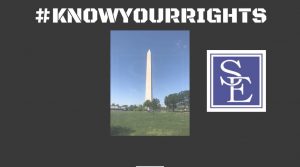On April 1, 2021 the American Rescue Plan Act (“ARPA”) went into effect, providing much needed relief as the country continues to reel from the impact of COVID-19. ARPA, which was signed into law on March 11, 2021, is a comprehensive, albeit temporary, funding bill addressing the economic and public health needs of both individuals and organizations that have been negatively impacted by the pandemic. It’s funding plan includes financial support for programs such as the Supplemental Nutrition Assistance Program (SNAP, formerly known as food stamps), schools, child and elder care, mental health and addiction, housing and pension plans, among others. For qualifying employees, ARPA also extends and expands unemployment benefits and health insurance coverage under COBRA.
 The Consolidated Omnibus Budget Reconciliation Act of 1985, commonly known as COBRA, allows qualifying employees – those who work for organizations employing more than 20 people – and their spouses and dependents to continue receiving health insurance coverage despite termination of their employment or reduction in their work hours, both events that would otherwise cause individuals to lose employer sponsored insurance coverage. The employee must pay an often high premium, but COBRA allows those who can afford it to avoid a gap in health care coverage.
The Consolidated Omnibus Budget Reconciliation Act of 1985, commonly known as COBRA, allows qualifying employees – those who work for organizations employing more than 20 people – and their spouses and dependents to continue receiving health insurance coverage despite termination of their employment or reduction in their work hours, both events that would otherwise cause individuals to lose employer sponsored insurance coverage. The employee must pay an often high premium, but COBRA allows those who can afford it to avoid a gap in health care coverage.
Under ARPA, the federal government is financing a subsidy to offset the cost of COBRA premiums until September 30, 2021. Individuals who qualify for the COBRA subsidy will not have to pay any amount for their continued coverage during this window. The employer sponsored group health plan will cover the cost, and the federal government will reimburse the employer through a payroll tax credit. Specifically, the employer will pay the COBRA premium directly to the insurer and then request a refund against its Federal Unemployment Tax in the total amount of COBRA premiums paid. This subsidy will be available to employees who were terminated or suffered a reduction in hours involuntarily, were previously eligible for COBRA and either did not elect to enroll, or who enrolled but since dropped the coverage. The subsidy will include medical, dental and vision coverage. It is important to note that this subsidized coverage is temporary and will end when employees either exceed COBRA’s existing 18-month coverage limit or become eligible for other health coverage, including a spouse’s insurance coverage, Medicare or other employer-provided coverage. For all employees, it will end on September 30, 2021.
ARPA also imposes several notice requirements on employers. For instance, they must provide a new 60-day COBRA election period to eligible employees and former employees, even if they had initially not elected COBRA continuation coverage. Eligible individuals must be notified that the subsidy is available to them, they have a new 60-day period to elect to participate and when the subsidy will end. Employers’ group health plans are required to provide eligible employees with all necessary forms, a description of all rights and responsibilities and all available coverage options. For those employees to whom the new 60-day election period applies, the employer must provide them notice of the new window. And if an individual’s subsidy ends before September 30, 2021, that employee must also receive notice of the date of termination of his or her COBRA coverage. On April 7, 2021, the Department of Labor released a series of Frequently Asked Questions and form notices to help employers satisfy these notice requirements. The forms must be distributed to eligible employees on or before May 31, 2021.
 New Jersey Employment Lawyers Blog
New Jersey Employment Lawyers Blog

